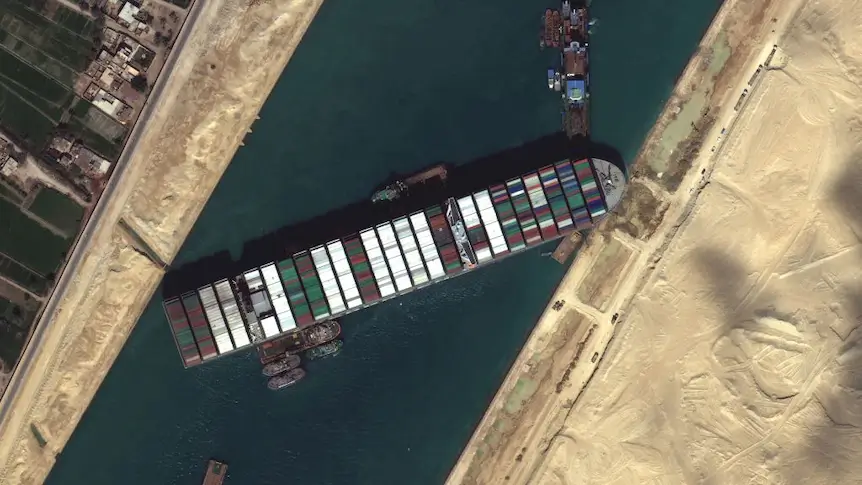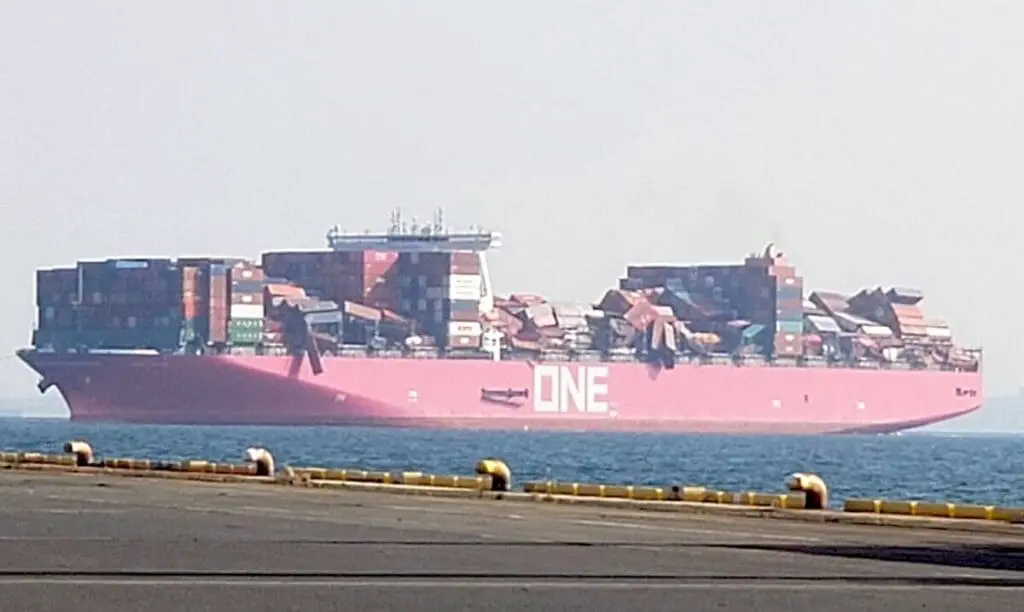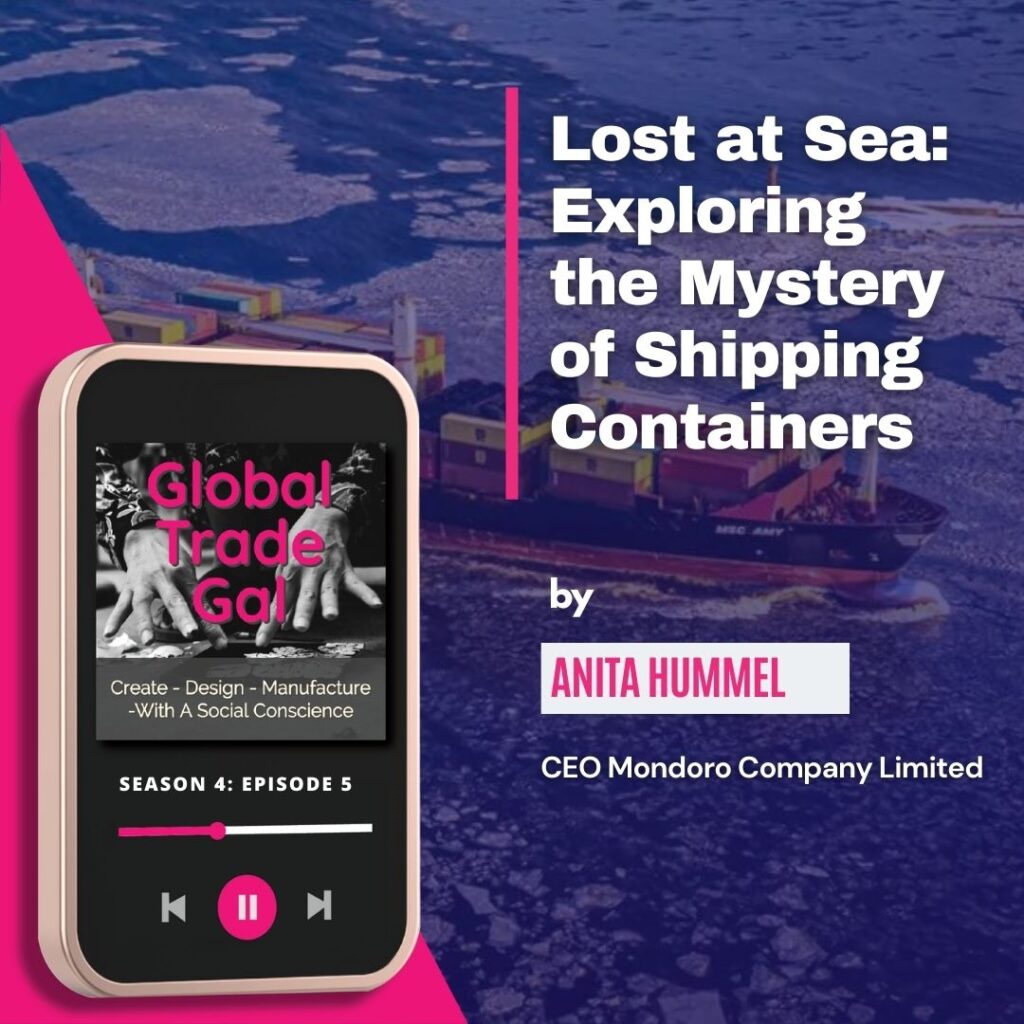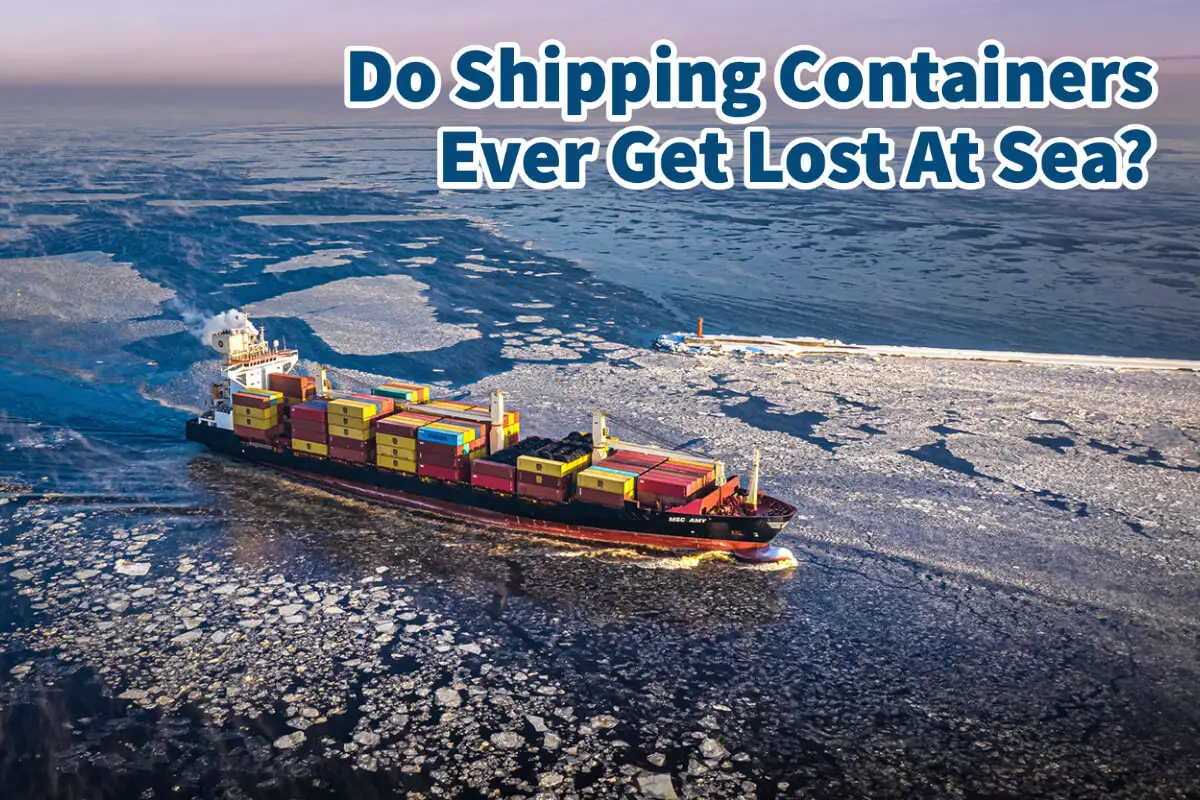In all the years we have been shipping containers, we have not had a container get lost at sea. Compared to the number of containers shipped daily, the number of containers lost at sea is relatively low.
Sometimes a shipping container can get lost at sea. For the number of containers shipped each day, losing a cargo container is still relatively rare. Most reasons a container is lost at sea are due to weather-related incidents. The other reasons usually have to do with human error, such as lousy stowage or improper handling.
Table of Contents
- About 0.001% Of All Shipping Containers Are Lost At Sea.
- Most Lost Cargo Containers Found In A Few Weeks
- Frequently Asked Questions
- Related Content
About 0.001% Of All Shipping Containers Are Lost At Sea.
The World Shipping Council (WSC) reports that less than one-thousandth of 1% or 0.001% of all containers shipped are lost at sea. For some reason, 2020-2021 was a terrible year for containers lost at sea and saw increased numbers.
The 2020 and 2021 shipping seasons saw that 3,113 containers were lost at sea compared to 779 during the previous period. This trend has worried some shipping companies.
As John Bulter, CEO of the World Shipping Council, has said:
“Container vessels are designed to transport containers safely and carriers operate with tight safety procedures, but when we see numbers going the wrong way, we need to make every effort to find out why and further increase safety.”
John Butler CEO, WSC
Despite the increase during these years, in most years, the amount of containers lost at sea, compared to the total number of containers shipped worldwide, is minimal. It is rare for a container to get lost at sea and not reach its destination.
Weather Is Major Reason Container Ships Lose Cargo
The primary reason shipping container ships will lose cargo, or the cargo falls overboard the boat is weather related. Harsh storms and other weather-related incidents can cause shipping containers to fall or blow off the ship and into the water.
When this happens, many of these same containers are eventually recovered, though more than likely, the goods inside are all damaged.
In 2021 we saw how the weather could play a role in containers getting lost. The two major shipping incidents were all weather-related. Here are some of the significant shipping incidents:

- Blocking Suez Canal – Every day, thousands of cargo ships will pass through Egypt’s Suez Canal safely, but in 2021, due to a weather-related issue, an Evergreen cargo ship that got stuck went off course due to strong winds. Containers were lost due to this incident, and the ship wedged in the canal blocked other traffic. During this incident, many containers were lost in the channel.

- Containers Overboard With Huge Swells Of Water – Another famous incident in 2021 that added to the loss of containers was the ONE Apus Cargo ship traveling from Yantian, China, to Los Angeles. Near the Hawaiian islands, the cargo ship encountered vast swells of water that sent 1,816 containers over the side and into the ocean.
We can see from both incidents that the containers went overboard or the ships were damaged due to weather-related issues.
Other Reasons Containers Are Lost At Sea
Even though the weather is the most common reason container ships are lost at sea, there can also be other reasons why a container may suddenly drop off a ship and into the ocean waters.
Here are some of the other primary reasons:
- Bad Stowage – Bad or improper stowage is also why a container may fall off a ship and into the ocean. This could also include improper or wrong placement of the cargo containers on the container ship.
- Handling And Supervision – Bad handling and supervision may also be why a container ship has containers lost or falling into the ocean. If the port does not know what they are doing, it can cause containers not to be secure and get damaged.
Though the weather is the primary reason cargo containers are lost at sea, lousy stowage of the containers or improper placement can also be an issue.
Most Lost Cargo Containers Found In A Few Weeks
The good news is that most lost cargo containers are found within a few weeks of being lost at sea. This means shipping companies can still find their containers, even if they fall overboard.
The bad news, of course, is that the products in the containers are probably damaged or unusable by the time you receive them if the container was floating around in the water.
Even if the containers are lost at sea and the products are damaged in the containers, finding them is essential as it will help to ensure that the world’s waterways are not littered with shipping containers that are damaging or polluting the world’s oceans.
Listen To Our Podcast About The Lost at Sea: Exploring the Mystery of Shipping Containers
Below or By clicking here.

Find out more about how Mondoro can help you create, develop, and manufacture excellent home decor and furniture products – don’t hesitate to contact me, Anita. Check out my email by clicking here or become a part of our community and join our newsletter by clicking here.
Mondoro gives out a FREE Lookbook to anyone interested. You can receive a copy of our latest Lookbook by clicking here.
Listen to our Podcast called Global Trade Gal. You can find it on all major podcast platforms. Try out listening to one of our podcasts by clicking here.
Subscribe to our Mondoro Company Limited YouTube Channel filled with great videos and information by clicking here.
Frequently Asked Questions
How often do shipping containers get lost at sea?
In general, the occurrence of shipping containers getting lost at sea is relatively low. Despite the vast number of containers shipped daily, it’s considered a rare event.
What are the primary reasons for containers being lost at sea?
The main causes of lost containers are typically weather-related incidents and, to a lesser extent, human error. Weather events like storms or rough seas can lead to containers falling overboard, while human errors might involve improper stowage or handling.
Is losing a container common in the shipping industry?
No, losing a container is not common in the shipping industry. Given the massive volume of containers transported globally, the instances of containers being lost are relatively infrequent.
How does weather contribute to containers being lost at sea?
Extreme weather conditions, such as storms or heavy seas, can result in containers being dislodged or falling overboard. This is a significant factor in the relatively rare cases of containers being lost during transit.
What measures are in place to prevent containers from getting lost?
Shipping companies implement strict safety protocols and guidelines to minimize the risk of containers being lost. These measures include proper container securing procedures and adherence to safety standards during adverse weather conditions.
Are there technological advancements to track and prevent container loss?
Yes, advancements in technology, such as GPS tracking systems and improved container securing mechanisms, contribute to reducing the risk of containers getting lost. These technologies enhance visibility and help prevent incidents during transit.
How often are containers lost due to human error?
While human error is a contributing factor, it is less common compared to weather-related incidents. Instances of containers being lost due to factors like improper stowage or handling are relatively infrequent in the shipping industry.
Do shipping companies compensate for lost containers?
Shipping companies typically have insurance policies in place to cover losses, including containers lost at sea. Compensation depends on the circumstances surrounding the loss and the terms of the insurance agreements.
Are there regulations governing container security during transport?
Yes, international maritime regulations, as well as industry-specific standards, mandate secure stowage and handling of containers during transportation. These regulations aim to minimize the risk of containers being lost or damaged.
What should shippers consider to prevent container loss?
Shippers should prioritize proper packing and securing of cargo within containers, adhere to industry safety guidelines, and stay informed about weather conditions. Taking these precautions significantly reduces the likelihood of containers getting lost at sea.
Related Content
An Insider Guide To Where Home Decor Stores Get Merchandise
Some of the best home decor stores we have been to will use a mix of these different buying methods. In other words, they will buy some great-looking products from wholesalers, have some products they have manufactured or sourced themselves, and then bring in some local craftsmen and sell their products. This gives the stores a unique mix and look.
To learn more, you can read An Insider Guide To Where Home Decor Stores Get Merchandise by clicking here.
What Is The Difference Between Supply Chain Management and Logistics?
Supply chain management is about the collaboration and partnerships to get the goods from raw materials to the end consumer; it is about the partnerships and collaborations within this supply chain process. Logistics is one part of supply chain management; logistics is about moving goods from one place to another. In some instances, the logistics providers will also store the goods and send them on to the end consumer.
You can learn more by reading our blog What Is The Difference Between Supply Chain Management and Logistics? by clicking here.
What Are The Benefits Of Supply Chain Management?
There are many benefits to supply chain management. The benefits of supply chain management include teamwork and collaboration, improved quality control, better efficiency and effectiveness, on-time deliveries, maximization of overhead costs, improved cash flow, risk mitigation, and shipping optimization. All of these areas are greatly helped by proper supply chain management.
You can learn more by reading What Are The Benefits Of Supply Chain Management? by clicking here.


